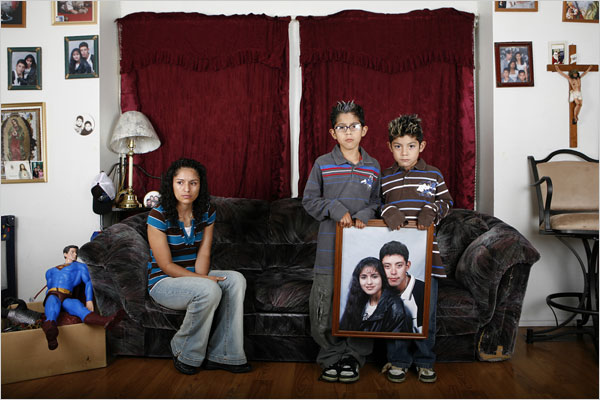| Want to send this page or a link to a friend? Click on mail at the top of this window. |
More Special Reports |
| Posted August 15; 2009 |
| Unscrupulous Lawyers Are Said to Prey on Illegal Immigrants |
 |
|
RAMIN RAHIMIAN FOR THE NEW YORK TIMES |
| Silvia Alfredo said a lawyer mishandled the case of her husband, an illegal immigrant. With her two sons, Leonel Medina, 9, and Guadalupe Medina, 6. |
|
By DAN FROSCH |
|
____________ |
| Easy targets because they are often desperate and afraid to go to the police. |
|
____________ |
| Wehaitians.com, the scholarly journal of democracy and human rights |
| More from wehaitians.com |